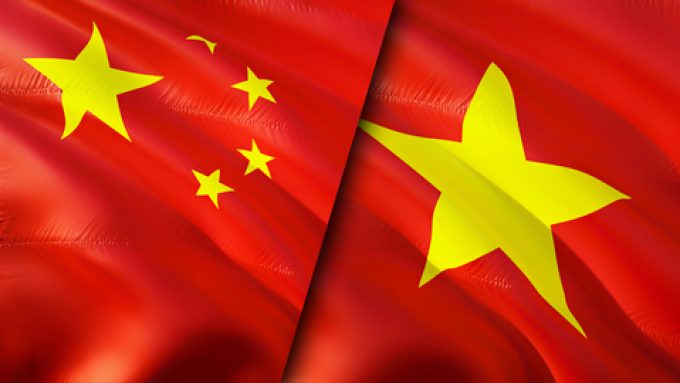US hit by fall in meat exports as China scales back and Brazil steps up
US meat exports are in low gear, affected by bans in the largest market, slowing ...
TFII: SOLID AS USUALMAERSK: WEAKENINGF: FALLING OFF A CLIFFAAPL: 'BOTTLENECK IN MAINLAND CHINA'AAPL: CHINA TRENDSDHL: GROWTH CAPEXR: ANOTHER SOLID DELIVERYMFT: HERE COMES THE FALLDSV: LOOK AT SCHENKER PERFORMANCEUPS: A WAVE OF DOWNGRADES DSV: BARGAIN BINKNX: EARNINGS OUTODFL: RISING AND FALLING AND THEN RISING
TFII: SOLID AS USUALMAERSK: WEAKENINGF: FALLING OFF A CLIFFAAPL: 'BOTTLENECK IN MAINLAND CHINA'AAPL: CHINA TRENDSDHL: GROWTH CAPEXR: ANOTHER SOLID DELIVERYMFT: HERE COMES THE FALLDSV: LOOK AT SCHENKER PERFORMANCEUPS: A WAVE OF DOWNGRADES DSV: BARGAIN BINKNX: EARNINGS OUTODFL: RISING AND FALLING AND THEN RISING

The shift of Chinese manufacturing to Vietnam is set to “accelerate” after a high level meeting in Beijing.
Vietnam’s general party secretary Nguyen Phu Trong met President Xi, who said China planned to build a “stable supply chain” with its southern neighbour.
He said: “China is willing to accelerate linking development strategies with the Vietnamese side, promote connectivity between the two countries and jointly build a stable industrial supply chain system.”
This would include China encouraging its tech companies to invest in Vietnam, Mr Xi said, adding that the two countries should also promote cooperation on healthcare, the digital economy and environmental issues.
China is already Vietnam’s largest trading partner, with bilateral trade increasing 24% kast year, to $165bn.
Furthermore, while much has been made of the move by foreign companies to diversify supply chains away from China – given rising wages and disruption from the zero-Covid policy – Vietnam insiders are quick to note that “a large part” of the shift is from Chinese manufacturers.
Andre Wheeler, CEO of Asia Pacific Connex and an expert on China’s Belt & Road Initiative, said China may be looking to invest in Vietnam’s hi-tech sector, given the trade restrictions imposed on it by the US and EU.
He told The Loadstar: “Vietnam has proved to be an attractive alternative manufacturing investment for international organisations. This has hurt Chinese manufacturing capability to some degree, but the biggest threat has been the move of high-end technology capability into the likes of Vietnam; both TSMC and Intel have moved significant microchip manufacturing and design.”
Meanwhile, Chinese e-commerce companies are also setting up shop in Vietnam. Amazon Vietnam said it had seen an 80% uptick in exporters this year, thanks in part to “an influx” of relocating Chinese e-commerce sellers.
Comment on this article